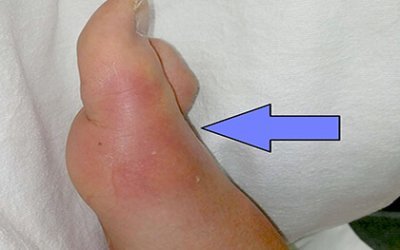Numbness, a symptom of Diabetes | Proven Remedies

If you feel numbness, tingling and shooting pain in fingers, hands, toes or feet then it is high-time to take a step towards self- analysis. Living with diabetes comes with its own set of challenges, and one of the often overlooked complications is diabetic neuropathy. Do you’ve been experiencing numbness in your fingers, feet, hands, or toes? It could be a symptom of this nerve disorder. In this blog post, we’ll explore the intricacies of diabetic neuropathy, its causes, symptoms, and most importantly, how to manage and prevent further complications.
Understanding Diabetic Neuropathy:
Diabetic neuropathy is a type of nerve damage that can occur in individuals with diabetes. High blood sugar levels over an extended period can lead to damage in the nerves throughout the body. One of the earliest signs is often the sensation of numbness, typically starting in the extremities.
If your numbness is due to diabetic neuropathy Then here are the Possible Causes of diabetic neuropathy
As we know numbness can be caused due to Diabetic neuropathy. Diabetic neuropathy is primarily caused by prolonged exposure to high blood sugar levels associated with diabetes. The exact mechanisms leading to nerve damage are not fully understood, but several contributing factors include:
- High Blood Sugar Levels: Elevated glucose levels over time can damage the blood vessels that supply oxygen and nutrients to nerves.
- Inflammation: Chronic inflammation, often linked to diabetes, may contribute to nerve damage.
- Genetics: Some individuals may be genetically predisposed to developing diabetic neuropathy.
- Metabolic Factors: Abnormalities in lipid metabolism and insulin resistance can play a role in nerve damage.
- Autoimmune Response: In some cases, the immune system may mistakenly target and damage nerve tissues.
- Neurovascular Factors: Changes in the blood vessels supplying nerves can contribute to diabetic neuropathy.
It’s crucial for individuals with diabetes to identify the symptoms like numbness and to manage their blood sugar levels effectively and adopt a healthy lifestyle to reduce the risk of developing diabetic neuropathy and its associated complications. Regular medical checkups and early intervention can also help in controlling and managing the condition.
Recognizing Symptoms like Numbness, tingling and many other:
Diabetic neuropathy can manifest in various ways, and symptoms may differ based on the type of neuropathy and the affected nerves. Common symptoms include:
- Numbness and Tingling: A prevalent early sign, often starting in the toes or fingers, and gradually spreading.
- Burning Sensation: Some individuals experience a persistent burning or tingling sensation, particularly in the extremities.
- Muscle Weakness: As nerve damage progresses, weakness in the muscles, especially in the legs, may become noticeable.
- Sharp or Shooting Pains: Sudden, intense pains, commonly described as shooting or stabbing, can occur, often worsened at night.
-
Loss of Coordination: Difficulties in balance and coordination may arise, affecting mobility.
-
Changes in Sensation: Sensitivity to touch may decrease or increase, and simple touches may cause discomfort.
-
Digestive Issues: Problems with digestion, such as constipation or diarrhea, can occur due to nerve damage in the digestive system.
-
Urinary Problems: Diabetic neuropathy can impact the nerves controlling the bladder, leading to difficulties in urination.
-
Dizziness and Fainting: Nerve damage affecting blood pressure regulation can cause dizziness and episodes of fainting.
-
Sexual Dysfunction: In men, erectile dysfunction, and in both men and women, decreased libido may be associated with diabetic neuropathy.
It’s important to note that not everyone with diabetic neuropathy experiences all these symptoms, and the severity can vary. Early detection and proper management are crucial for preventing further complications. Individuals experiencing any of these symptoms should consult with their healthcare provider for a comprehensive evaluation and personalized care plan.

Diabetes Management Strategies
While diabetic neuropathy can be challenging, there are strategies to manage its symptoms and prevent further progression:
Blood Sugar Control: Maintaining optimal blood sugar levels is crucial in managing and preventing diabetic neuropathy.
Healthy Lifestyle Choices: Incorporating regular exercise, a balanced diet, and avoiding tobacco and excessive alcohol can positively impact nerve health. Know the importance of healthy eating.
Consultation with a healthcare professional: Consultation with a healthcare professional is essential to determine the appropriate treatment plan, proper medication and to deal with emergency situations. Certain medications may help alleviate pain and manage symptoms like numbness, tingling and pain.
Prevention Tips
Regular Checkups: Regular monitoring of blood sugar levels and routine medical checkups can aid in the early detection and management of diabetic neuropathy.
Foot Care: Pay special attention to foot care to prevent complications such as infections or ulcers. Recovery from any type of infection can be time- taken in diabetic patients. Regular inspection and moisturizing can be beneficial.
Exploring Herbal Remedies
While it’s important to note that herbal remedies should not replace medical advice or prescribed treatments, herbal remedies can help you to maintain a healthier lifestyle, some people find certain herbs beneficial for managing symptoms like numbness, tingling and shooting pain which are associated with diabetic neuropathy. Always consult with your healthcare provider before incorporating herbal remedies into your routine, as they can interact with medications or have varying effects on individuals. Here are a few herbs that some people consider:
Curry Leaves:
Eating 10 fresh fully grown curry leaves every morning for three months is said to prevent diabetes due to heredity factors. It also cures diabetes due to obesity, as the leaves have weight-reducing properties. As the weight drops, diabetic patients stop passing sugar in the urine.
Fenugreek Seeds:
Fenugreek seeds can also be taken for diabetes. The normal dose is two teaspoons of powdered seeds taken daily in broth or milk. Two teaspoons of the seeds can also be swallowed whole, daily. Alternatively, they may be soaked in a cup of water at night and the water can be taken in the morning, on an empty stomach.
This herb, due to its high vitamin C content, is effective in controlling diabetes. A tablespoon of its juice, mixed with a cup of fresh bitter-gourd juice, taken daily for two months will stimulate the pancreas and enable it to secrete insulin, thus reducing the blood sugar in diabetes. Diet restrictions should be strictly observed while taking this medicine. It will also prevent eye complications in diabetes.
Equal quantities of powdered Indian gooseberry (amla), Java plum or Indian blackberry (jambul fruit), and bitter gourd provide a very useful remedy for diabetes. A tablespoon of this mixture once or twice a day would be effective in checking the progress of the disease.
Seeds of Java plum or Indian blackberry (jambul fruit):
Powder the seeds and preserve them in an airtight container. Dose: 1/4 teaspoon of this powder add one teaspoon of honey and take every morning for 45 days.
Bark of Banyan Tree:
Soak one-inch bark overnight in a glass of water and drink the infusion the next morning on an empty stomach.
Always remember that the effectiveness of herbal remedies can vary, and individual responses may differ. It’s crucial to consult with your healthcare provider before trying any herbal supplements, especially if you are taking medications or have pre-existing health conditions. Additionally, herbal remedies should be used as part of a comprehensive treatment plan that includes proper medical care, lifestyle modifications, and medication adherence.
Numbness in your fingers, feet, hands, or toes should not be ignored, especially if you have diabetes. Diabetic neuropathy is a serious complication, but with proactive management and lifestyle changes, its impact can be minimized. If you’re experiencing these symptoms, consult with your healthcare provider promptly to address the issue and develop a comprehensive plan for a healthier, more comfortable life with diabetes.
References
Brian C. Callaghan, Gary Gallagher, Vera Fridman & Eva L. Feldman (2020). Diabetic neuropathy: what does the future hold? Diabetologia Journal. View
Heng Yang, Gordon Sloan, Yingchun Ye, Shuo WangShuo Wang, Bihan Duan, Solomon Tesfaye, Ling Gao. (2020). New Perspective in Diabetic Neuropathy: From the Periphery to the Brain, a Call for Early Detection, and Precision Medicine. Frontiers in Endocrinology. View
- H.K.Bakhru (1992) Herbs That Heal: Natural Remedies for Good Health. Orient Paperbacks. Delhi, India.
- T.V.Sairam (1999) Home Remedies Vol-II: A Handbook of Herbal Cures for Common Ailments. Penguin Books India.
Dos
Monitor Blood Sugar Levels Regularly:
Keep track of your blood sugar levels as advised by your healthcare provider.
Strive to maintain consistent and target blood glucose levels.
Adopt a Balanced Diet:
Follow a well-balanced and nutritious diet with a focus on whole foods.
Monitor carbohydrate intake to help manage blood sugar levels.
Engage in Regular Physical Activity:
Include moderate exercise in your routine, such as walking or swimming.
Consult with your healthcare team before starting a new exercise program.
Manage Weight:
Maintain a healthy weight, as excess weight can contribute to diabetes complications.
Work with healthcare professionals to establish a realistic weight management plan.
Inspect Feet Regularly:
Check your feet daily for any signs of sores, cuts, or infections.
Keep feet clean and moisturized, and wear comfortable, well-fitted shoes.
Avoid walking barefoot to prevent injuries.
Trim toenails carefully to avoid ingrown nails.
Take Medications as Prescribed:
Adhere to your prescribed medication regimen as directed by your healthcare provider.
Report any side effects promptly.
Don’ts
Neglect Foot Care:
Avoid going barefoot, especially in areas where injuries are more likely.
Don’t ignore foot problems – seek prompt medical attention for any issues.
Overlook Skin Care:
Don’t use harsh or drying soaps on your skin.
Avoid extremely hot water when bathing.
Ignore Symptoms like numbness and tingling:
Don’t dismiss or ignore symptoms such as numbness, tingling, or pain.
Report any changes to your healthcare provider promptly.
Neglect Regular Checkups:
Don’t skip regular checkups and screenings.
Regular medical evaluations are crucial for monitoring and managing diabetes and its complications.
Neglect other problems caused by diabetes:
Don’t forget regular eye examinations, as diabetes can affect eye health.
Report any changes in vision promptly.
Smoke or Consume Excessive Alcohol:
Avoid smoking, as it can worsen blood vessel damage.
Consume alcohol in moderation, if at all.
Skip Meals:
Don’t skip meals, as this can lead to blood sugar fluctuations.
Eat regular, well-balanced meals throughout the day.
Send Us A Message
FAQs
Numbness in these areas can be caused by various factors, including poor circulation, nerve damage (such as carpal tunnel syndrome or peripheral neuropathy), pressure on nerves (like when sitting or sleeping in an awkward position), vitamin deficiencies (especially B vitamins), diabetes, certain medications, and underlying health conditions like multiple sclerosis or hypothyroidism.
While occasional numbness might be harmless and temporary, it's essential to pay attention to persistent or recurring numbness, especially if it's accompanied by other symptoms like weakness, tingling, pain, or difficulty moving affected areas. If you experience sudden or severe numbness, especially on one side of your body, seek medical attention promptly as it could be a sign of a stroke or other serious medical condition.
Depending on the underlying cause, there are several strategies you can try to alleviate numbness. These include improving your posture, avoiding prolonged pressure on nerves, ensuring proper ergonomics at work, staying active to promote circulation, managing underlying health conditions like diabetes or vitamin deficiencies, and avoiding smoking, which can impair circulation. Additionally, gentle stretching, massage, and applying warm or cold packs may provide temporary relief.
It's generally a good idea to consult a healthcare professional if you experience persistent or recurrent numbness, especially if it's interfering with your daily activities or quality of life. Your doctor can help identify the underlying cause and recommend appropriate treatment or further evaluation, which may include diagnostic tests like nerve conduction studies, blood tests, imaging scans, or neurological examinations. Early intervention can help prevent complications and improve outcomes, so don't hesitate to seek medical advice if you're concerned about numbness.














